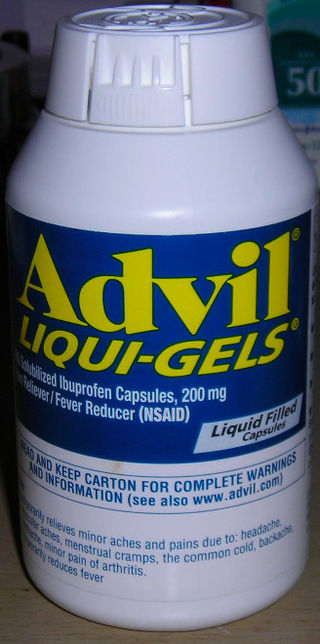 |
| Advil, over the counter treatment for pain |
The problems related to addiction to painkillers are said to be growing. At the same time physicians find themselves in the middle many times. Patients need pain medications, yet if a doctor prescribes too much of it, or does not track the amount given with the medications given by other doctors, then an individual can end up with an addiction that may be difficult to control. And that may lead to additional problems as well.
Drug counselors worry about prescription drugs being used by people who don't need pain management but look for that high they feel they get when they have something like Vicodin, as an example.
The World Congress has declared pain relief to be a basic human right. Yet many peopole live with chronic--or even acute---pain because of the complications raised by prescription drug abuse. 80% of people, however, are said not able to get relief because of this.
Doctors in the United States fear law enforcement and problems if they give too much pain medication. Others are concerned about addicting patients.
Even of those drugs like marijuana, that recent research has found is not a gateway drug, and also found useful for the treatment of pain, is not legal in many countries.
The World Congress on pain pleads with governments to establish policies and laws to address the basic right of people to have relief from pain. They saw that veterinarians get more training in how to manage pain than many primary care physicians.
In the undeveloped world, many just don't have access to healthcare and most have low or no access to pain medication.About 70 percent of children in (Australia and the United States) the terminal phase of life with cancer had severe unrelieved symptoms and
severe pain, World Congress officials believe this is unconscionable.
The most common types of pain are those related to the back, head and joints. The variety of over-the-counter medications are said to usually be sufficient to maintain control over much of the chronic pain patients who need help in managing their pain. The problem is when the chronic pain at times becomes acute, or sudden; and the over-the-counter medications are insufficient.
In addition to the quandary doctors have in making determinations about medications for pain, many doctors lack the training, or even the compassion, related to pain. Some have the same orientation toward pain culturally as others in their same cultural group. And for some cultures, pain is something one does not complain about but simply bears.
Pain is what people might complain about, but how and where one complains can also be an issue.
All of these concerns about pain make it a complex situation for patient and doctor alike, that in each case has to be individualized. Still it makes a difference when the world recognizes that pain management is just as much a human right as anything else and therefore worthy of world attention.
No comments:
Post a Comment
Say something constructive. Negative remarks and name-calling are not allowed.